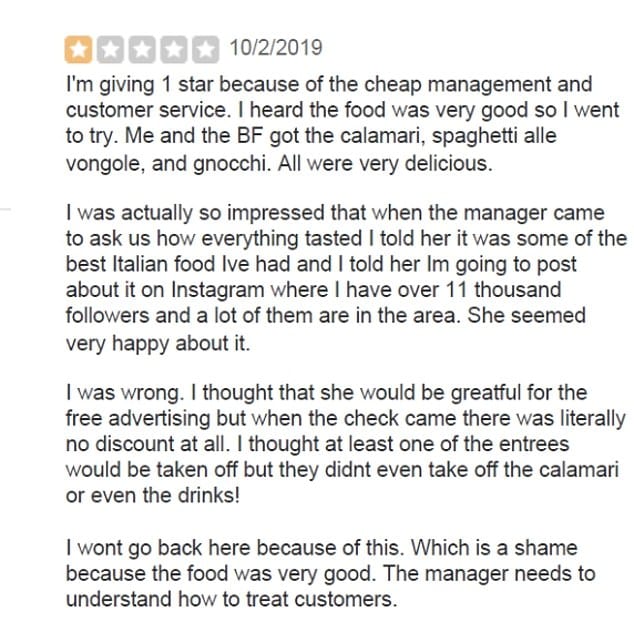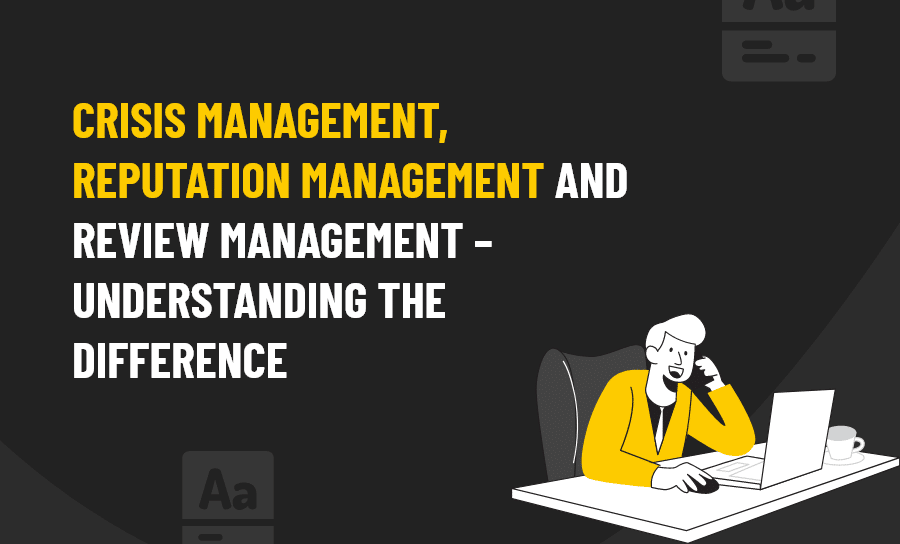As a PR team that devotes much of their working time to help our clients improve their brand reputations, manage their online reviews, and deal with crisis management we sometimes forget that some of our prospective clients do not actually grasp what the difference is between those things.
When we do stop and think about – as we are now – we think it’s important to educate those who don’t understand these critical areas of public relations, so that is what we want to offer an overview of here.
CRISIS MANAGEMENT AND CRISIS COMMUNICATIONS
A crisis is live, something that is happening right now. For companies that could be a faulty product, a failed service offering, an employee ‘gone rogue’ or one that’s become embroiled in a scandal that affects the company as a whole.
For individuals, it could be almost anything, especially in an age when the concept of cancel culture is so pervasive and there are people in the media – and on social media – who are just waiting to pounce and help tarnish the reputation of people they don’t know. A negative review that goes viral, a comment from previous years, etc.
Ignoring or dodging the crisis is never the answer. And sometimes even the biggest brands don’t understand crisis management, which is surprising at times. Like it or not, crises are typically newsworthy, even if it’s ‘only’ on a local level, and they are not something you can hide from. Good crisis communication can help you manage the issue at hand before it gets too big.
Unfortunately, especially because of the speed that information, rumours, and gossip can travel, thanks in large part to social media, you should always be prepared for a public relations crisis. Part of that planning needs to include a plan that clearly defines how crisis issues will be handled. Who will speak, what will be said, where information and statements will be shared.
Having a PR team in place that’s already familiar with your brand when and if a crisis hits can be invaluable. Without one, you will waste precious time searching for someone to help you with crisis management. And by the time you find that help a lot of damage may already have been done.
REPUTATION MANAGEMENT
As you can imagine, a crisis can have a serious effect on a brand’s reputation. And that damage can linger and linger, thanks to Google. The negative content that a crisis generates shows up – and usually shows up first – when people search for information about your brand. Just one negative headline-generating crisis, however well the immediate fallout was handled, can stick around for years in the SERPs (search engine results pages). That is why in-person and online reputation management is very important.
Online reputation management is about changing the negative perception that consumers may develop of your company as they search for information. That negative content needs to be removed from SERP results, but as that is often a lot easier said than done it at least needs to be moved down and out of the first few pages of a search. Doing that is something of an art, but it’s one that the Pearl Lemon Leads PR team has done – and continues to do – very well. Contact us to find out about our online reputation management service.
REVIEW MANAGEMENT
There is a big difference between an online reputation management problem and an online review problem. A review problem arises when a company has an otherwise good brand reputation and is considered rather trustworthy, but then online reviews begin cropping up that threaten that. Consumers don’t want to do business with a brand or a company that has a 1-star rating. And even 2 and 3 stars can give many of them serious pause.
Sometimes bad reviews are justified. In those cases, review management will need to involve responding to the review in the right way and addressing the issues that it arose from.
These kinds of negative reviews can actually be turned into positives if you can demonstrate that you were attentive enough – and cared enough – to respond to a poor review and do your best to put things right most consumers will be impressed and your reputation in their mind is likely to be improved, not damaged after all.
You do, however, need to be aware of the fact that lots of reviews just are not fair, and in some instances are placed with the specific purpose of damaging your business reputation. It might be by your competition, or it might just be by a person whose expectations are way off base. Having a good reputation management strategy will help you get a positive reputation again should things go awry.
Here’s a recent example of a bad review that made big headlines. A woman left a review for a popular restaurant. Rather than try to explain it to you second hand, here it is for you to read yourself.

Most of us would rightly find that laughable, but the review algorithms that these sites have still dragged down an otherwise great score. This review actually ended up helping the eatery, however, because the owners responded quickly, got the story out there and it was then picked up by the likes of the Daily Mail and George Takei. The ‘Instagrammer’ is probably still seriously embarrassed, but the restaurant is not. This is a great example of reputation management and another potential customer would be pleased to see that the business was so attentive.
These types of reviews are more common than you might think. But by dealing with them in the right way – no one named and shamed the reviewer, just shared what she wrote – their impact can be changed from a negative to a positive as well.
Not everything about public relations is about generating good press and high praise. That’s why you need a PR team on your side that can help you handle the negatives and execute a crisis management plan when they do occur. The Pearl Lemon Leads PR team does this exceptionally well, just another reason you should contact us to discuss our reputation management service and how we can help you.






